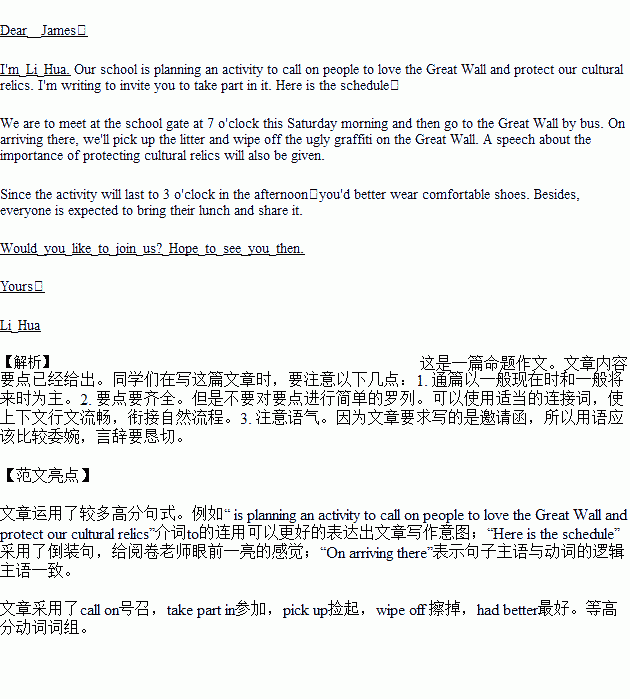题目内容
假设你是李华, 你们学校计划组织学生去长城进行“我爱长城”的宣传活动,请你给你们班的交换生James写一封邮件,邀请他参加。内容包括:
1.集合时间及地点;
2.活动安排:
①捡拾景点乱扔的垃圾;
②宣传文明旅游,爱护文化遗产。
3.注意事项。
1.词数100左右(开头和结尾已给出,不计入总词数);
2.可以适当增加细节,以使行文连贯。
提示词:涂鸦 graffiti
Dear James,
I'm Li Hua. _______________________________________________________________________________
____________________________________________________________________________________________
____________________________________________________________________________________________
____________________________________________________________________________________________
____________________________________________________________________________________________
____________________________________________________________________________________________
____________________________________________________________________
Would you like to join us? Hope to see you then.
Yours,
Li Hua


 d marketing has effects that go beyond simply increasing our liking or wanting of the product being advertised and actually affect our preferences for all foods in that category,” said Emma Boyland of the University of Liverpool.
d marketing has effects that go beyond simply increasing our liking or wanting of the product being advertised and actually affect our preferences for all foods in that category,” said Emma Boyland of the University of Liverpool.